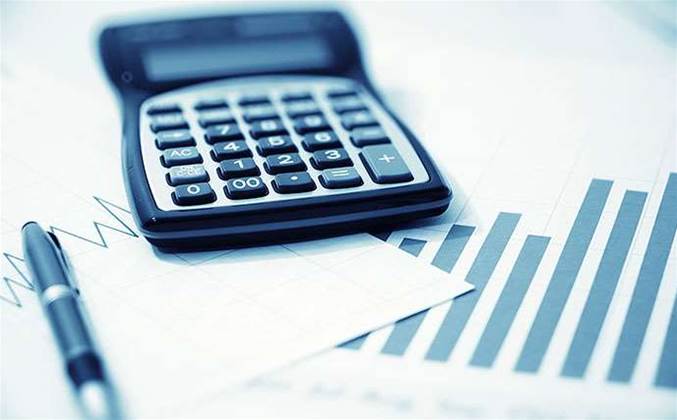Apple Australia claims it has come out unscathed from a five-year audit by the Australian Taxation Office, avoiding any penalty for a globally controversial transfer pricing structure.

Apple is one of a handful of technology companies to have come under the spotlight worldwide in recent years for their tax arrangements.
It reportedly shifted $9 billion in Australian profits to its Irish parent in the ten years prior to 2013 by placing increasing mark-ups on products sold by the Irish operation to Apple Australia.
Last year saw Apple globally ordered by the European Commission to repay A$19.2 billion after it found the company's Irish tax arrangements to be illegal under state aid rules.
Apple Australia has been under Australian Taxation Office scrutiny since 2012, and today revealed that audit had wrapped up in May of this year with "no issues of dispute".
The audit examined the consumer electronics giant's accounts from 2012 to 2015. The company is due to report its 2017 financial results for the year to September 2017 next January.
Apple Australia managing director Tony King said the ATO had found no problems with the company's filings.
"We have confirmation from the ATO that all our corporate taxes are up to date and we continue to engage only with the ATO as to our current and future taxes," King told a parliamentary committee today.
Apple's tax bill for 2016 jumped significantly on previous years to $128 million thanks largely to an adjustment of $58.3 million relating to prior years. Its revenue was $7.5 billion.
King today revealed the adjustment was a result of updated estimates following the end of an advanced pricing arrangement the company had had with the ATO that lapsed in 2011.
The $58 million "brings our taxes up to date", he said.
He denied the adjustment was related to the new diverted profits tax and anti-avoidance legislation brought in by the Australian government last year.
"The anti-avoidance legislation looks at companies who have their books and records, unlike Apple Australia, offshore. All our billing and transactions are captured on our local books," King said.
"The diverted profits tax is designed to capture tax on transactions where transfer pricing is not correctly applied. We've had a very good look at the legislation and spoken to the ATO about it ... and they've confirmed our transfer pricing arrangement is correct. Assuming ... our business model remains unchanged, the DPT does not impact Apple's operations in Australia."
King claimed Apple had paid around $630 million in tax during the five-year period of the audit, compared to around $175 million in the five years prior.
"Our revenues have increased by a factor of about 2.6, and our taxes have increased at about a factor of 3.6. Our taxes have increased at a greater rate than our revenue growth," he said.
During the past five years Apple has significantly increased its presence in Australia, opening 22 retail stores and boosting its workforce to 4000; ten years ago it was operating as a basic sales and import business.
"We don't claim any interest deduction in net profit, we don't have any inter-company debt, we don't claim R&D credits, our effective tax rate is 30 percent," King said.
However he declined to provide a detailed explanation for why Apple Australia's cost of sales is about 91 cents for every dollar of revenue, compared to 61 cents per dollar globally, apart from attributing it to the purchase of products from Apple globally.
Advanced pricing arrangement
Apple is now turning its attention back to the advanced pricing arrangement it previously had in place with the ATO but which lapsed in 2011 and lost priority to the audit.
An advanced pricing arrangement (APA) allows a business to agree with the ATO on a transfer pricing methodology for specific transactions over a fixed period. Transfer pricing refers to the price at which divisions transact with others in their group globally.
An APA is intended to give certainty to both the ATO and taxpayer on the nature of payments over the specific time.
Apple was one of the first taxpayers to have an APA with the ATO in 1991. It is now working to set in stone a new arrangement following the completion of the audit.
King said discussions with the ATO were "active and underway" but was unable to give an indication of when an APA would be agreed on.
Separately, he said Apple would increase the transparency of its accounts by adopting 'general purpose financial reports', which will highlight related party transactions, among other things.
Apple has until this year filed its financials as a 'special purpose financial report'; a looser type of report generally used by small to medium enterprises. Its 2017 financial results will come in the form of the more rigid general purpose financial report normally used by large enterprises.
Apple Australia's revenue for its current financial year will come in at around $7.5 billion, with net profit at $400 million and an income tax bill of $120 million, King said.


_(23).jpg&h=140&w=231&c=1&s=0)

_(28).jpg&h=140&w=231&c=1&s=0)
_(33).jpg&h=140&w=231&c=1&s=0)





 iTnews Benchmark Awards 2026
iTnews Benchmark Awards 2026
 iTnews Executive Retreat - Security Leaders Edition
iTnews Executive Retreat - Security Leaders Edition
 iTnews Cloud Covered Breakfast Summit
iTnews Cloud Covered Breakfast Summit
 The 2026 iAwards
The 2026 iAwards












_(1).jpg&h=140&w=231&c=1&s=0)



